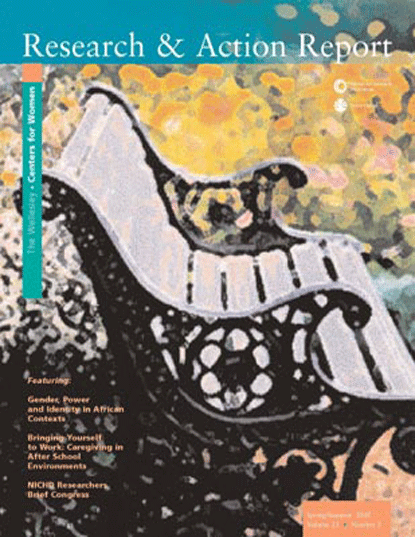Assistant Director: Patricia Jahoda Stahl, Ed.M.
Years ago, after-school hours were a time when children played in the neighborhood, at home, or with friends. Today, they are a time when many parents scramble to find accessible, affordable, high-quality child care. As the number of after-school programs increases and the child-care field expands, various agendas are being promoted about the "appropriate" role of these programs in children's lives: academic skill development to improve performance on standardized tests, social competency skills, crime prevention, or welfare reform.
Based on our diverse professional experience, our life experiences, and new research on the significance of relationships, we believe that after-school programs provide an opportune time to focus on the social and emotional development of children. We understand the most significant ingredient in a program to be the quality of the staff/child relationships. These relationships are valuable in and of themselves and are also a means to an end-the promotion of strong relational skills among children.
There is increasing evidence that children's social and emotional needs are as important as their physical needs and that people grow "in connection" to others. Research indicates that relationships with adults can enhance a child's self-esteem, foster social competence, and build academic skills. It is less clear how adults can support the development of these growth-enhancing relationships in an intentional way.
This project builds on the theoretical work at the Wellesley College Centers for Women including the research of Jean Baker Miller, M.D. and the practical experience of the National Institute on Out-of-School Time. It focuses on the opportunity to develop relational aptitude during out-of-school time by enhancing the capacity of program staff to be more aware of themselves in relation to others.
Fostering a positive relational environment and meaningful connections is crucial for children and also for the adults who care for them. From both a theoretical and a practical standpoint, adults who have an awareness of their own relational needs and capacities have the potential to be more effective caregivers and role models.
Many programs - even those reputed to be of good quality - fall short in creating a successful relational environment. The best programs emphasize the personal development of staff and the idea of "bringing oneself to work." When staff take time, as a group, to reflect on their goals, motivation, organizational dynamics, relational practices with children, and potential as role models, and when they deliberately work on building their own relational aptitude as well as that of the children, they are happier and more effective caregivers. The quality of the relationships and the overall quality of the programs are visibly enhanced and the children benefit.
We plan to create a new training practice and training curriculum that will focus on the development of relational skills for after-school program staff, and in turn for the children who are part of the after-school programs. Building on our findings in the field and on the existing research and theories on relational development, we will offer training opportunities at Wellesley - at program sites, and at conferences - that are theoretical, experiential, and process focused.
Our relational curriculum will teach skills through the lens of self-awareness. Participants will continually be asked to tap into and use their own experiences to understand the importance of connection. They will then be taught to use this self-knowledge as a way to build relationships with coworkers, to role-model effective group interaction and leadership, and ultimately to teach relational skills directly to children. We currently envision training segments focused in the following areas: theoretical understanding of relational development, self-awareness/bringing oneself to work, leadership and mentoring in after-school programs, the power of storytelling in developing relationships, building relationships within the program and in the community, diversity, and evaluation. Initially, our staff will conduct the trainings; eventually, they will be led by practitioners instructed in a "train the trainers" model.
As part of the curriculum, each after-school program will develop a customized plan for enacting the concepts in In ways that fit the specific site. Each site will also be assigned a technical assistance provider - a practitioner recognized as a leader with exceptional relational skills, who has been trained by Center staff - to mentor other programs. Programs will also have access to Center resources (books, videos, contacts).
Evaluators will work closely with Center staff both to evaluate the impact of the model on programs and to assist institute staff in developing tools for assessing relational skills on an individual and programmatic level. As part of this initiative, several publications will be developed. Possibilities include working papers on the applicability of relational theories to after-school programs, evaluation tools, relational curricula, the process of building a relationally based training model, and an evaluation of the overall initiative.
 Seligson, Michelle and Stahl, Patricia. (2003). Bringing Yourself to Work: A Guide to Successful Staff Development in After-School Programs. New York: Teachers College Press.
Seligson, Michelle and Stahl, Patricia. (2003). Bringing Yourself to Work: A Guide to Successful Staff Development in After-School Programs. New York: Teachers College Press.


